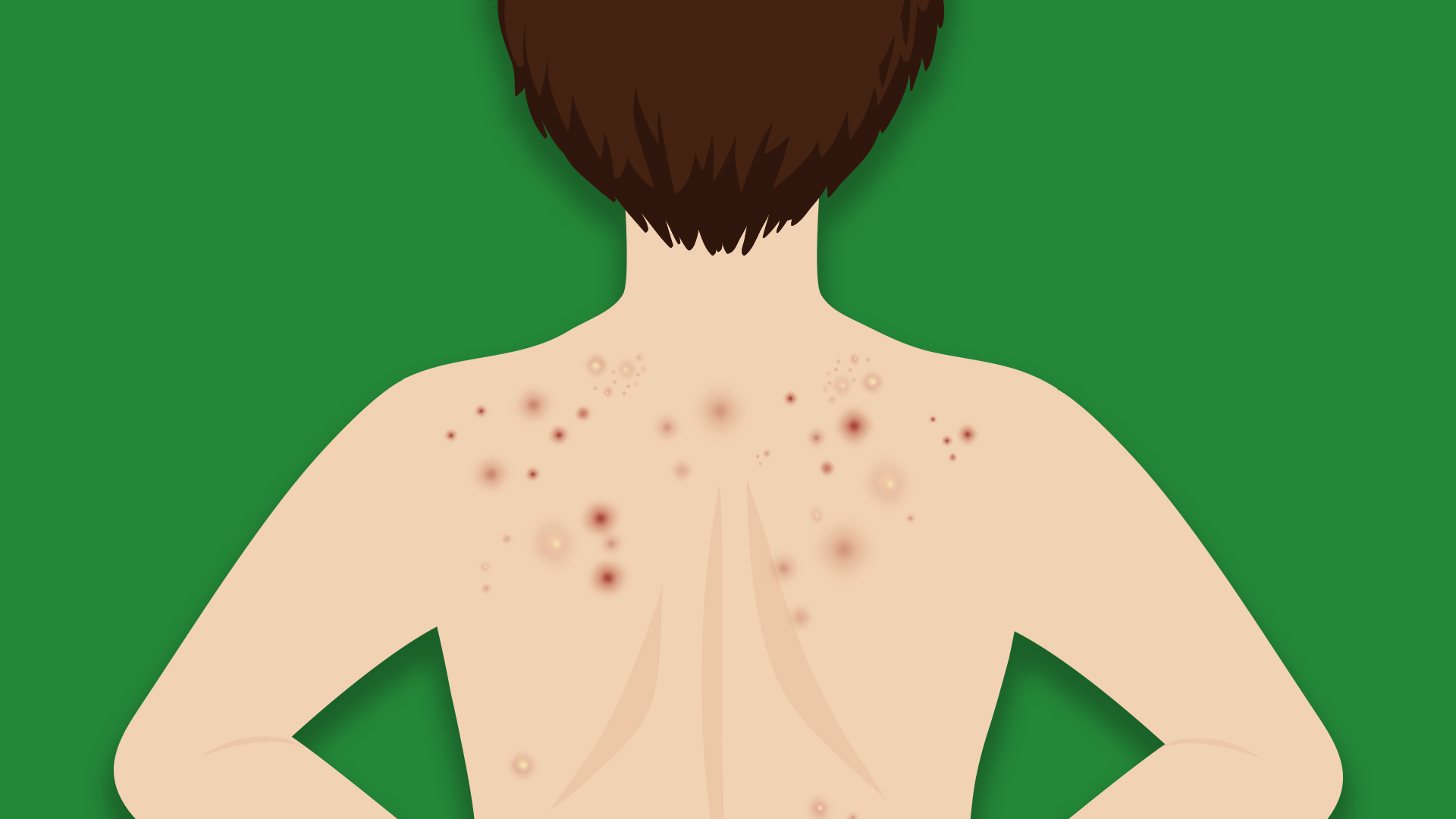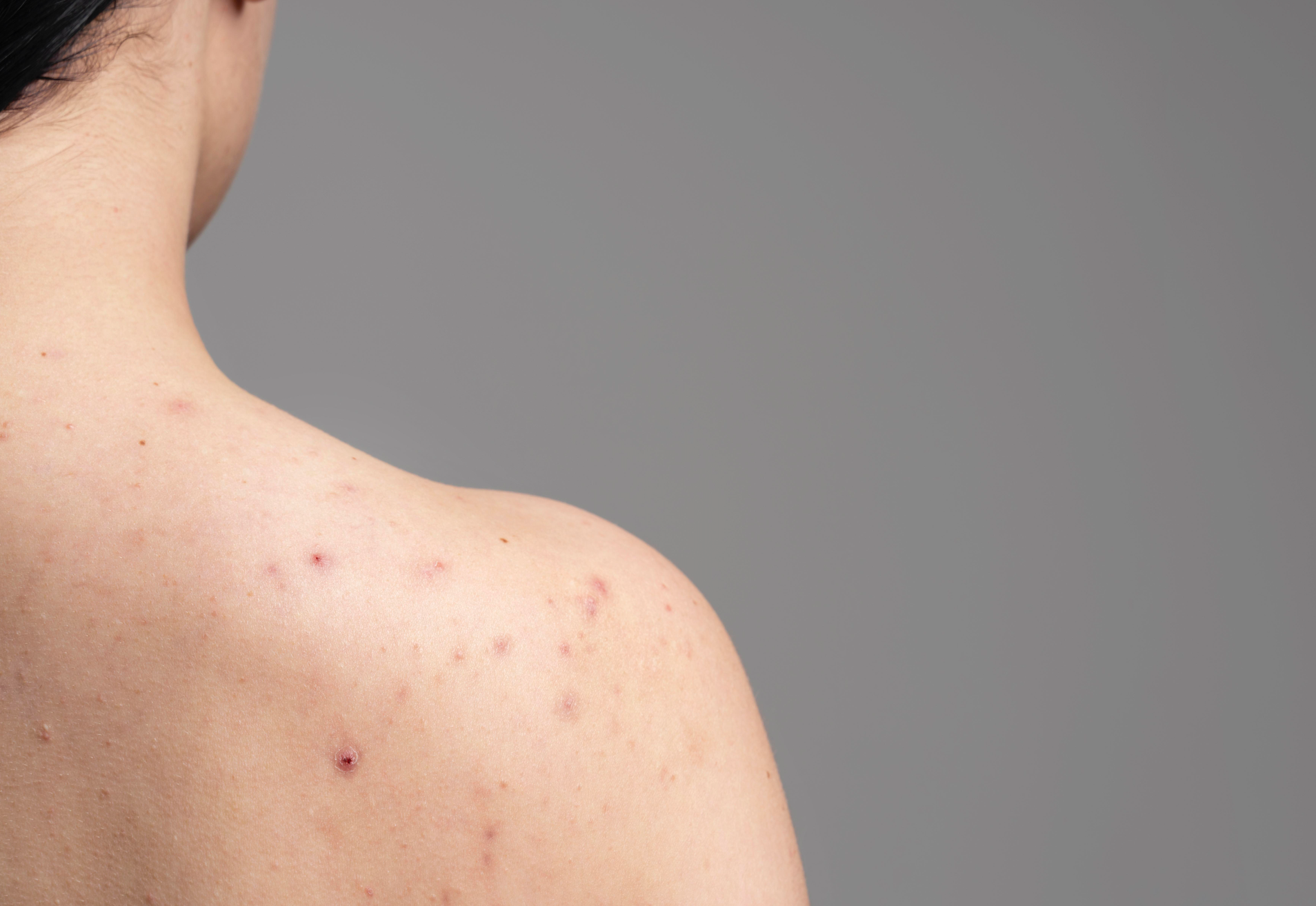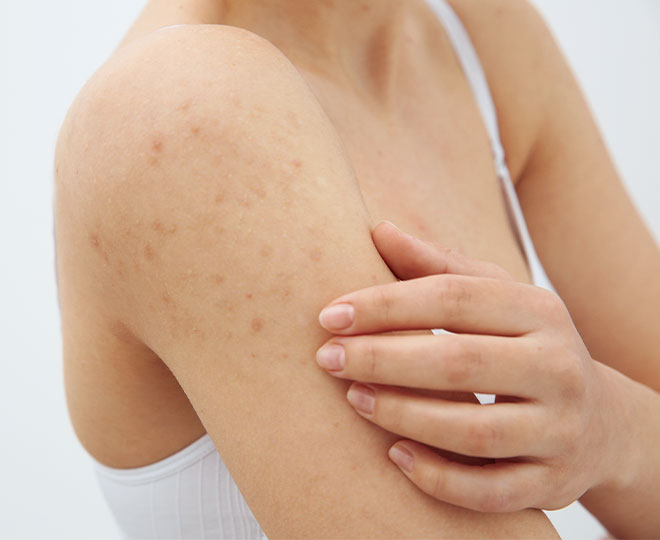Dealing with body acne can be a frustrating experience for many people, especially since it often appears in highly visible areas and can interfere with daily comfort. Studies suggest that acne affects a significant portion of the global population—some estimates put it at around 9.4%—highlighting that you’re far from alone if you’re struggling with breakouts on your back, chest, or other parts of your body. However, acne is just a skin condition, nothing more. It’s a common occurrence that doesn’t define your worth or beauty. For anyone dealing with it, I’d like to say: “EMBRACE YOURSELF. YOU ARE BEAUTIFUL, AND ACNE DOESN’T CHANGE THAT!”
Still, it’s natural to want to take steps to minimize or prevent body acne. Whether you’re noticing new blemishes on your back after starting a workout regimen, or you’ve had long-standing issues with chest or shoulder pimples, there are practical ways to address body acne and feel more confident in your skin. Below are ten tips—expanded with helpful details—that can guide you toward clearer skin and renewed self-assurance.
1. Don’t Let Sweat Dry on Your Skin—Shower Promptly
When you exercise or engage in any intense physical activity, your body produces more sweat to help regulate temperature. This sweat, if left to dry, can trap bacteria and mix with the natural oils on your skin, potentially contributing to clogged pores. Here are a few practices to keep in mind:
- Quick Shower Routine: Even if you’re in a rush, try to rinse off as soon as possible after a workout. A brief shower can be enough to remove sweat, bacteria, and any product buildup that might be lingering on the skin’s surface.
- Gentle Cleansers: Choose a mild, non-comedogenic (non-pore-clogging) body wash. This ensures your skin gets clean without being stripped of its natural, protective oils.
- Focus on Hot Spots: The back, shoulders, and chest typically produce more oil and sweat. Pay extra attention to these areas as you cleanse.
By showering soon after sweating, you’re helping to reduce the amount of time sweat and bacteria remain on the skin, thereby lowering your risk of breakouts.
2. Exfoliate Regularly (But Gently)
Exfoliation is one of the best ways to remove dead skin cells, sweat residue, and other debris that can clog pores. However, the key here is balance: too much exfoliation can irritate the skin and potentially worsen acne.
- Choose the Right Product: Consider a gentle exfoliating scrub or a chemical exfoliant containing salicylic acid. This ingredient can penetrate the pores to clear out excess oil and dead cells.
- Frequency: Start by exfoliating once or twice a week. If your skin tolerates it well and you’re not experiencing any redness or irritation, you can gradually increase to 2-3 times a week.
- Technique Matters: Use light, circular motions to avoid damaging your skin. Pressing too hard or scrubbing aggressively may create micro-tears, leading to more irritation.
Regular exfoliation can leave your skin feeling smoother and help reduce the likelihood of blockages that cause pimples.
3. Wear Breathable Clothing
Tight or non-breathable fabrics can trap heat, sweat, and oil against your skin. Over time, this may exacerbate breakouts. Instead, try these suggestions:
- Opt for Natural Fibers: Cotton, linen, and moisture-wicking materials allow air to circulate, helping to keep your skin drier and cooler.
- Avoid Excessively Tight Fits: If you’re prone to body acne, consider looser cuts or at least outfits that don’t cling too firmly to your back or chest.
- Look for Activewear with Moisture Control: Many brands now offer workout clothing designed to wick moisture away from the skin. These can be a game-changer if you exercise regularly.
Wearing breathable clothes not only helps reduce sweating but also ensures that moisture doesn’t stay trapped on your skin for extended periods.

4. Keep Long Hair Off Your Back
Long hair can carry oils, dirt, and styling products, all of which can be transferred onto your skin when your hair rests against your back or shoulders. To tackle this issue:
- Tie It Up: If you have long hair, consider wearing it in a ponytail, braid, or bun, especially on hot days or during workouts.
- Wash Regularly: Shampoo and condition as needed to minimize buildup. When your hair is clean, it’s less likely to transfer oils onto your skin.
- Careful with Products: Hair sprays, gels, and leave-in treatments can sometimes lead to breakouts if they come into contact with the skin. Be mindful of overspray or product residue.
By keeping your hair away from your back, you reduce the chance of pore-clogging substances lingering on your skin.
5. Choose Skincare Products Wisely
Not all skincare formulations are created equal, particularly when you have acne-prone skin. Certain ingredients can help prevent blemishes, while others might contribute to them. Here are some pointers:
- Look for “Non-Comedogenic” Labels: These products are specifically formulated to avoid clogging pores.
- Effective Ingredients: Products containing salicylic acid, tea tree oil, or white willow bark can be beneficial for managing acne. They gently remove excess oil and can help reduce inflammation.
- Patch Test: When trying a new product, test it on a small patch of skin first. This allows you to see if your skin reacts negatively before you apply it more broadly.
A little research goes a long way when it comes to choosing cleansers, lotions, and body washes that support clear skin.

6. Stay Hydrated
Water plays a pivotal role in overall health, and skin health is no exception. Staying adequately hydrated can help in numerous ways:
- Flushes Out Toxins: Proper hydration supports your immune system and helps flush out bacteria that can accumulate under the skin.
- Maintains Skin Balance: Dehydration can sometimes prompt your skin to produce more oil to compensate for dryness. By drinking enough water, you help maintain balanced hydration levels.
- Supports Healing: If you do develop pimples or irritated areas, well-hydrated skin may heal more effectively.
Try incorporating water-rich foods like cucumber, melon, and leafy greens into your meals as part of your overall hydration strategy.
7. Add Anti-Inflammatory and Antioxidant-Rich Foods
Your diet can have a noticeable impact on your skin’s appearance. Foods with anti-inflammatory properties can help reduce acne flare-ups:
- Berries and Colorful Fruits: Packed with antioxidants that may help keep skin calmer.
- Whole Grains and Beans: Often associated with slower insulin spikes compared to refined grains, potentially helping to reduce inflammation.
- Certain Nuts and Seeds: Walnuts, almonds, and chia seeds contain healthy fats that are beneficial for skin health.
Aim for a balanced diet rich in fruits, vegetables, whole grains, and lean proteins to support overall well-being as well as clearer skin.

8. Resist the Urge to Pop Pimples
Popping or picking at your pimples can create more harm than good:
- Scarring Risks: When you pop a pimple, you risk causing permanent scars or dark spots.
- Infection Concerns: You also risk introducing bacteria deeper into the pore, potentially leading to more inflammation.
- Dermatologist Advice: If a breakout is particularly painful or persistent, consult a skincare professional for personalized treatment recommendations. They might prescribe a topical cream, spray, or other specific interventions to speed up healing.
As tempting as it may be to “fix” a spot immediately, leaving pimples alone usually promotes healthier, quicker healing.
9. Use Non-Comedogenic Sunscreen (SPF)
Protecting your skin from the sun is crucial, but many traditional sunscreens can clog pores, especially if they’re heavy or oily. Here’s how to keep skin both safe and breakout-free:
- Choose Non-Comedogenic SPF: Sunscreens labeled “oil-free” or “non-comedogenic” are less likely to clog pores.
- Apply Broad-Spectrum SPF: Look for formulas that protect against both UVA and UVB rays, ideally with an SPF of 30 or higher.
- Skin Health Beyond Acne: Regular use of sunscreen helps prevent premature aging and reduces the risk of skin cancer—both essential for maintaining healthy skin at any age.
Remember, even if you only spend short periods outside, consistent application of a suitable sunscreen can make a big difference in your skin’s overall well-being.
:max_bytes(150000):strip_icc()/Health-bodyacne-GettyImages-1842213988-de4f9b0ba96347dcafbb7c28158fc67d.jpg)
10. Include Zinc and Low-GI Foods in Your Diet
Research indicates that certain nutrients can assist in reducing inflammation linked to acne. Zinc, in particular, has gained attention:
- Zinc-Rich Foods: Spinach, oysters, pumpkin seeds, and wheat germ are just a few examples of zinc-heavy items. By incorporating these into your meals, you may support a calmer, less inflamed complexion.
- Low Glycemic Index (GI) Choices: Foods with a low GI, such as most vegetables, legumes, and fruits, cause slower rises in blood sugar. High spikes in blood sugar have been associated with increased oil production in some individuals, which can exacerbate acne.
- Variety Is Key: Strive for a balanced diet with a range of vitamins and minerals. Incorporating lean proteins, healthy fats (like avocado and olive oil), and plenty of fresh produce can improve not only your skin, but your general health as well.
These small adjustments can have cumulative benefits for both your overall wellness and your skin’s clarity.

A Final Word: Embrace Your Skin
Body acne can undoubtedly feel discouraging, especially when it shows up frequently or in noticeable areas. However, it’s important to remember that it’s a common condition shared by millions of people around the globe. Breakouts do not diminish your worth, nor do they dictate how beautiful or confident you can be. While these ten tips can help you manage or reduce your body acne, it’s equally crucial to foster self-love and acceptance.
- Balance and Patience: Skin improvements often take time. Don’t be discouraged if you don’t see immediate results. Consistency in your skincare habits and daily routines is key.
- Seek Professional Guidance: If your body acne is severe, painful, or resistant to basic at-home measures, consult a dermatologist. They can personalize a treatment plan, possibly recommending prescription creams, oral medications, or other specialized strategies.
- Confidence and Self-Care: Your well-being is more than just skin-deep. Regular exercise, a balanced diet, and mindfulness of your mental health all play roles in how you look and feel.
Ultimately, these ten tips serve as a road map. Whether it’s showering right after you sweat, exfoliating wisely, or being cautious with the products that come into contact with your skin, each small adjustment can move you closer to clearer, healthier skin. And if you ever find yourself discouraged by a breakout, remember that acne is merely a condition—not a reflection of your beauty or self-worth. By approaching your skin with a combination of care, knowledge, and patience, you empower yourself to feel confident inside and out.

